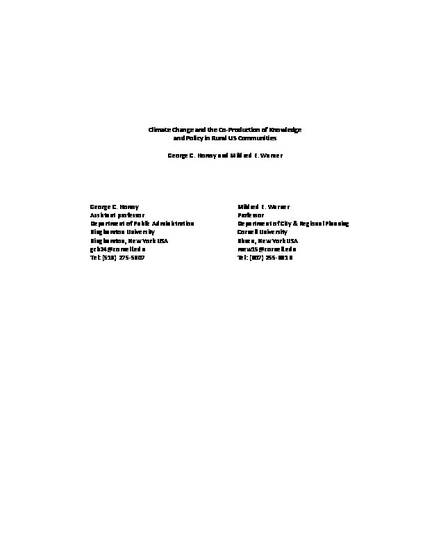
- environmental policy,
- local farming
Climate change requires action at multiple levels of government. We focus on the potential for climate change policy creation among small rural governments in the US. We argue that co-production of scientific knowledge and policy is a communicative approach that encompasses local knowledge flowing up from rural governments as well as expertise and power (to coordinate and ensure compliance) flowing down from higher level authority. Using environmental examples related to land use policy, natural gas hydro-fracturing, and watershed protection, we demonstrate the importance of knowledge flows, power, and coordination in policy creation. Co-production of knowledge and policy requires respect for local knowledge and a broader framing of issues to include both environmental and economic perspectives. While we see potential for local action, we caution that polycentric approaches lead to externality problems that require multilevel governance to ensure coordination and compliance.
This is the pre-peer reviewed version of the following article: Homsy, G. C., & Warner, M. E. (2013). Climate Change and the Co‐Production of Knowledge and Policy in Rural USA Communities. Sociologia Ruralis doi: 10.1111/soru.12013, which has been published in final form at doi: 10.1111/soru.12013 . This article may be used for non-commercial purposes in accordance with Wiley Terms and Conditions for Self-Archiving.
